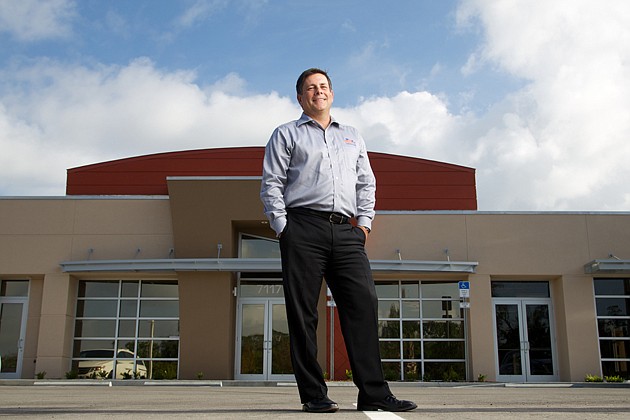- November 25, 2024
-
-
Loading

Loading

Few contractors outside of Hillsborough and Pinellas counties venture there.
There are lots of reasons, but chief among them is that the two counties present a daunting challenge by their sheer size and greater number of competitors.
But one Fort Myers contractor, Stevens Construction, has entered the Tampa market and is making inroads there. Stevens is well known for the health care buildings it has grown to specialize in, and it has several projects in Tampa with Florida Hospital.
“Tampa's a tough market,” acknowledges Mark Stevens, the firm's president. The company has seven senior managers in Tampa overseeing about $15 million worth of work currently.
“We took our senior managers and distributed them among the offices,” says Stevens. The company expanded to Orlando when the Southwest Florida economy started to weaken, and Stevens has seven project managers there.
Another eight project managers are based in Fort Myers, but those in Tampa and Orlando work there during the week and commute home to the Fort Myers area on the weekends. Stevens Construction houses the Tampa managers in three condominiums there and hires Tampa-based subcontractors for the labor.
“Orlando is the toughest market,” says Stevens. “It's more price-driven than anywhere else. Tampa is tougher than Fort Myers, but not as bad as Orlando.”
But business is picking up in these three areas. “The subcontractor base is busy in all markets,” Stevens says, though he notes that one reason is because many subcontractors left Florida during the real estate crash and there's less competition.
Stevens says entrepreneurial doctors in their 30s and early 40s are taking advantage of relatively low building and financing costs to build new practices. “I've had two physicians pay cash in the last two years,” Stevens notes.
In addition to being a contractor, Stevens now sees his role as a financial adviser to doctors. He's finding them sources of financing and helping them draft business plans. “This is what I spend a lot of my time doing,” he says.
Meanwhile, hospitals are consolidating. That translates into opportunities to renovate older existing facilities like those that Florida Hospital acquired in Tampa.
Regulatory burdens on health care construction have increased the cost of construction so much that many firms avoid the sector, limiting the number of competitors. “In the niche market, there's always room for another player,” says Stevens.
“Health care construction costs are up 30% in the last 10 years just due to regulation,” Stevens says. For example, to paint a hospital room, you have to build a pressurized and monitored vestibule at the door that painters have to step through. Stevens says he's concerned that well-meaning safety regulations will make hospital renovations and construction so safe that we can't afford them.
Closer to home, Stevens says he's encouraged by discussions of new projects on the horizon because of a recovering economy. “We're looking at a car dealership in Naples next year,” he says. “People are talking.”
Stevens anticipates revenues will rise to $20 million in 2013, up from $16 million in 2012. At the peak in 2007, Stevens Construction posted nearly $30 million in revenues.
Still, Stevens estimates that it'll take about another year or two for existing space to fill up in the Fort Myers area to justify a rebound in commercial construction.
Stevens has specialized in health care because that was one sector that was less impacted by the economic downturn. Health care now accounts for 75% of his business. “It would be healthier for our company to have a more balanced portfolio of work,” he says. He'd like to see health care account for 50% of the business and the rest be government and commercial projects.